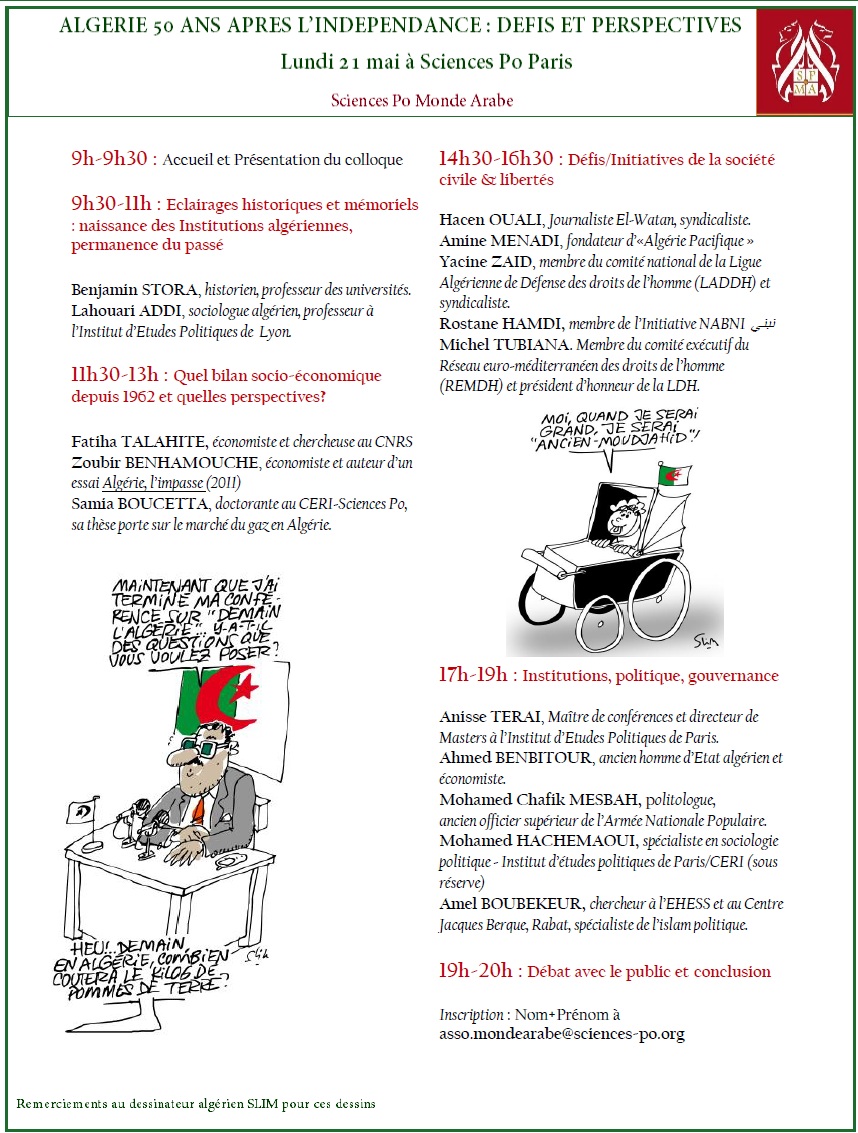Interview by Tamer Mallat – 2 July 2013
Karim Hafez is one of the leading lawyers in the Middle East, and is Senior Partner and founder of Hafez Law Firm, a premier trial firm and arbitration practice based out of Cairo, Egypt with offices in Paris, Doha and Jeddah. He obtained his PhD in law from Cambridge University, and has held teaching positions at Harvard Law School and the American University in Cairo, where he is currently Adjunct Professor of Law. ArabsThink had the opportunity to interview Karim Hafez about his experience in practicing law in Egypt (Part II, click here for interview) and on Egypt’s dangerous economic situation. The interview was conducted in June 2013.
The uneven distribution of consumer power in Egypt, whether under Hosni Mubarak or the Morsi administration, has remained unchanged. While austerity is certainly affecting the livelihood of ordinary Egyptians, can the same be said about major corporations, multinationals, or to put it more boldly, the Egyptian economic elite?
Karim Hafez: Of course, it hits you. It impacts you in a way that it does not for less affluent members of society. It might mean lower returns on whatever investments you’ve made, but it does not threaten your existence or your subsistence. It means you are going to declare a smaller dividend or delay the acquisition of a fancier mansion, but that’s pretty much all it means to you in short or medium term but for the populace at large it is very challenging. It really means cutting on essential expenditure. It means making trade-offs that are very painful. It means sending one instead of two kids to school and taking one out of school and putting him or her to work. It means a poorer diet. It can be traumatic. It places extraordinary pressures on the very fabric of family life. It engenders discord between spouses. There is no established connection between macroeconomic indicators and the incidence of marital failure, but there is a general sense that families on the whole tend to do worse in times of economic malaise.
Make no mistake, elites may change depending on who is holding the reins of power, the change is very gradual because the original elite is not going to make wholesale concessions and the new elite is not going to be installed overnight and there is going to be significant overlap between old and new, and you get a lot of turncoats and people who are able to adapt to the new set of rules and the new political system. But the reality is that the disparity between rich and poor has not changed dramatically at all. There are no positive levity measures that have been adopted over the last two years. None seem to be in the offing. In fact, I do not exaggerate when I say that it is not even a part of any major platform. The Brotherhood is just as capitalist as its predecessor.
There was recently the establishment of an alliance of major Brotherhood businessmen…
Karim Hafez: They’ll probably want to claw their way into the heart of the Egyptian marketplace and economic life. There’s probably going to be a battle of titans between the old and the new and the outcome is anything but preordained. The reality is that except for one or two medium and small parties, property alleviation isn’t the topmost of any political platform currently on display. And that is sad, because no democracy can prosper without a large middle class. The historical evidence is overwhelming that unless you have a well-established, well-grounded middle class, you are very unlikely to sustain a vibrant political democracy on a long-term basis.
There is nothing being done in order to alleviate the disparity between Egyptians, neither in the short term, nor in the long term. Do you think that there exists a way for the very affluent part of society and those that live below the poverty line to be reconciled?
Karim Hafez: When you say reconciled, it can mean a number of things. There are a number of competing development policies, some of them have seen better days. I do not know if there is a new consensus in development economics. But it looks as though the dictats of the Washington consensus have been discredited and the trickle-down effect of liberal economic development policy hasn’t taken place in many ways because the state has not enacted measures to ensure that it does. Politics and economics are inextricably linked, you cannot have a legitimate political system that can survive without the support of the economic middle classes, and at the moment in Egypt you have a vulnerable middle class at best, and people are effectively falling into poverty rather than being lifted from it.
And that chasm, if it continues to grow, will spiral into any political consensus that is reached in the short and medium term because when it comes to your livelihood, politics are overwhelmed by economics. And that’s why people go on to say that unless the Muslim Brotherhood can resolve the power outages, it’s going to be catapulted out of office. I’m not sure that that will be an entirely bad thing, but it shows the connection between your economic wellbeing on the one hand, and the political choices that you make on the other.
Investment disputes against the Egyptian state before the World Bank (International Centre for Settlement of Investment Disputes [ICSID]) are not uncommon, and you have represented both sides in the past. Lawlessness and the failure of the state to ensure full protection and security is a major issue for investor confidence. State interventionism, Kafkaesque bureaucratic procedures and expropriation/ nationalization is also of significant concern for investors, and Egypt is no stranger to such a legacy. Can we expect to see new cases arise in the near future?
Karim Hafez: I see you are drawing a broad potential parallel with Nasserism and I don’t think that that the parallel is sustainable. The type of expropriations that the Nasser regime is known for required a very broad and entrenched political base that Nasser and his colleagues enjoyed, which allowed them to subvert the existing economic system and effectively reach the political elite of the time. And it was the turn of the times, if you look everywhere in the developing world, nationalizations were the order of the day in post-colonial societies. And even if you look at the economics literature of that period, especially by bodies like the UN economic development committee or the Commission of Latin America where much of the interesting work on development was being done on how to actually lift countries out of poverty, the move from the periphery of the global economic system to the center.
Nationalization, a big push for industrialization and land reform were the ideas that were being discussed, not just in the corridors of power but also in the hallways of the academy. That is no longer true, at least for the time being. The socialist experiment has suffered a significant setback. Whilst ideas have a way of coming back in a somewhat different guise under the influence of a slightly different set of circumstances, for the moment the idea of developing third world economies by relying on foreign direct investment and export industrialization seems still to hold sway with the governing elite. I think the reason why we have 15 or 16 investment cases against the Egyptian government is not so much because the state is exercising policies adopted consciously as part of a vision of how the country should refashion itself. It actually is the absence of any guiding hand and the virtual disintegration of the state apparatus that has left investors with nowhere to go other than arbitrary tribunals in order to get any traction on the decision-making process. Nowadays, ministers and state officials generally are almost pathetically and comically incapable of making even every-day transactional decisions. Clearly they are in fear of upsetting one or the other constituency or that they will be brought to account by their successor in office, all within the context of a sort of game of musical chairs of appointments.
So I think that it’s the absence of a vision, not a commitment to any sort of traditional developmental policies that is at the heart of the decisions that are resulting in disputes being referred to arbitral tribunals. Some of those disputes are the result of the economic collapse that followed an extraordinarily ill-managed political transition. If you look at Egypt, the macroeconomic fundaments have not changed, you are still where you were on the map two years ago. You still have the same number of foreign workers. You still have the same transit levels across the Suez Canal and you still have the same touristic attractions that you boasted before.
What has changed? People aren’t coming anymore to visit your attractions because law and order has collapsed. People are not remitting foreign funds anywhere near as much as they did because you’ve had to ration access to foreign currency. People would rather now send fists of dollars with anybody who happens to be headed to Cairo neatly tucked away in the inside of their coat. So without law and order, without the return of the foreign tourists, without a minimum of legislative and judicial security, the economy’s not going to pick up. And if anything, the spiral of collapse will continue with god-awful ramifications that can only now be glimpsed but may actually turn to be far worse than we have reasoned to expect at this point.
Could the Egyptian case turn out similar to the Argentinean example? In the face of a decade-long economic crisis, President Christina Kirchner has resorted to expropriating major foreign investments. The epitome of these expropriations being the Repsol scandal expected to amount to claims of well over USD 10 billion.
Karim Hafez: You have to see how Argentina got there. Argentina went bankrupt, it had to go to the international crisis institutions for assistance and had to introduce a number of far-reaching liberal economic policies in fairly short order. They seemed to pay dividends, and for a while Argentina was the poster boy of the World Bank and the IMF and then politics took over and there were a lot of populist policies adopted that placed a significant burden on the peso. The link to the dollar had to be reconsidered and the economy went into freefall.
And in an attempt to recover, the government was then called upon to take pacification measures, forcing the conversion of dollar obligations into pesos and the extreme valuation of the currency led to the filing of 34 odd claims before the International Centre for Settlement of Investment Disputes (ICSID) and an untold number before other investment tribunals under non-ICSID mechanisms. Are we headed that way? Very possibly. There comes a point when it will be virtually impossible for us to borrow our way out of the current difficulty. The governing elite seems to be, for as far as I can make out, determined not to make any concessions to any of the other mainstream political groups. That results into a virtual political stalemate. Law and order suffer and the economy doesn’t recover.
And all along, you’ve got a bloated state bureaucracy, a balance of payments that is in very poor shape, a balance of trade that is suffering every day more than it did the day before. There seems to be nobody with the gravitas and the vision to chart a course out of this mess that we’ve found ourselves in. So I would say yes, it is very possible that we will have even more claims brought against the state than have already been, and for larger sums. I’ve just come back from a meeting where I had sight of a request for arbitration for about a billion dollars under the ICSID mechanism against one of the instrumentalities of the Egyptian state in the oil and gas industry.
The stuff doesn’t hit the airwaves nearly as quickly as the disputes that are referred to the ICSID mechanism because the information is essentially public but the consequences could be as dramatic and the fallout as serious as any other. I don’t think we are anywhere near the end of this political transition and the economic dislocation that we are living through unfortunately.








